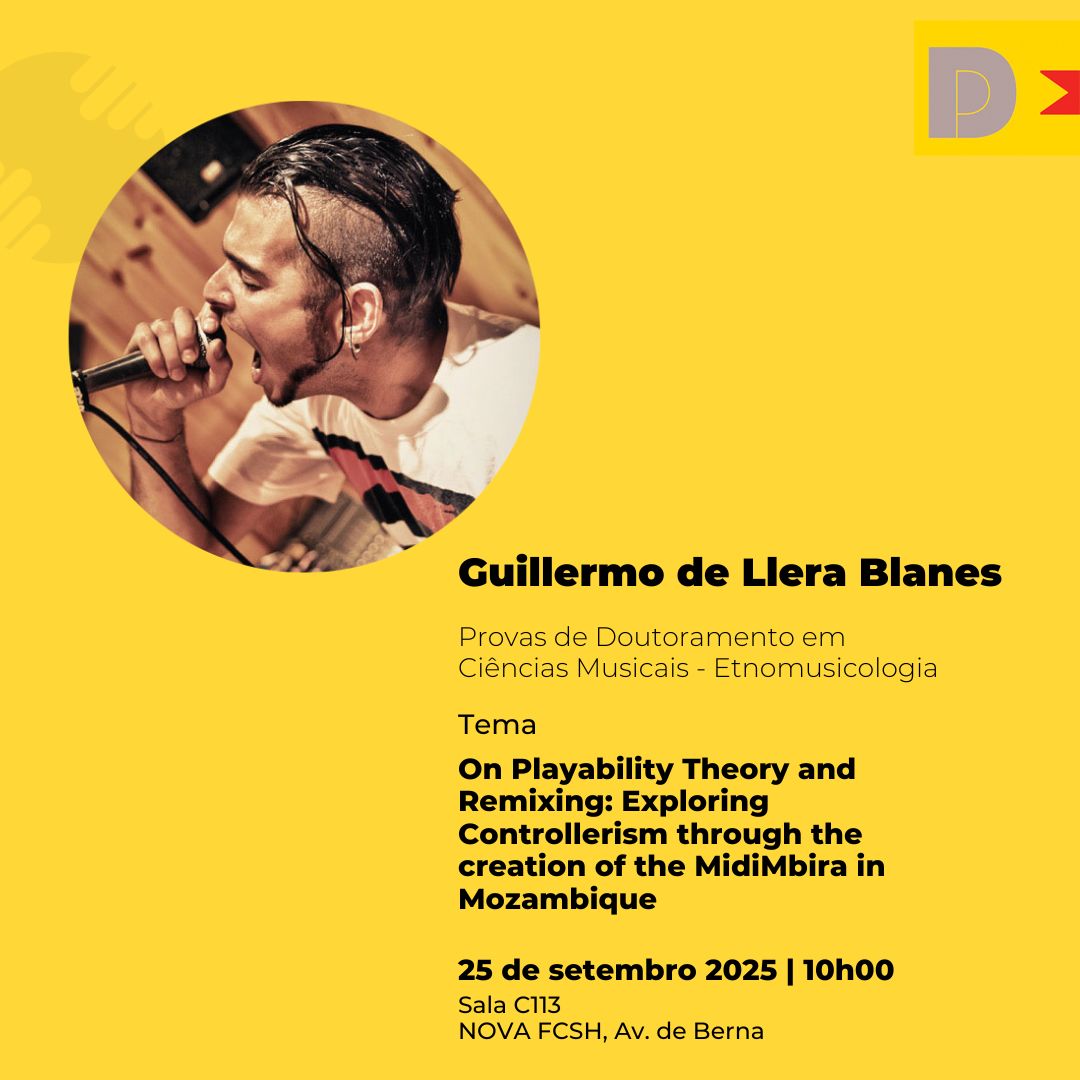
On September 25, 2025, by 10 am, will be held the doctoral examinations in Musicology – Specialization in Ethnomusicology of Master Guillermo de Llera Blanes, who will defend his dissertation titled On Playability Theory and Remixing: Exploring Controllerism through the creation of the MidiMbira in Mozambique, supervised by João Soeiro de Carvalho.
Ph.D Committee:
- Prof. Dr Manuel Pedro Ferreira, President of the Committee (CESEM, NOVA FCSH)
- Prof. Dr Paula Gomes Ribeiro (CESEM, NOVA FCSH)
- Prof. Dr Paula Guerra (Faculdade de Letras da Universidade do Porto )
- Prof. Dr Eduardo Navas (Penn State)
- Prof. Dr Michael MacDonald (MacEwan University)
- Prof. DrJoão Soeiro de Carvalho, Supervisor (INET-md, NOVA FCSH)
On Playability Theory and Remixing: Exploring Controllerism through the creation of the MidiMbira in Mozambique
This dissertation explores the intersection of traditional and digital music practices through the development and analysis of the midimbira, a hybrid musical instrument that merges the mbira’s cultural heritage with contemporary technological advancements. Central to the research is the question of how digital technology can serve as a bridge for traditional instruments, allowing them to find renewed relevance and contextual significance within today’s global music landscape.
Employing a combination of participatory action research (PAR) with Mozambican artisans, autoethnographic reflections, and an examination of remix culture, this study underscores the fluid and dynamic nature of cultural expression in an increasingly interconnected world.
The findings reveal the nuanced ways in which traditional instruments like the mbira can be adapted through remix and digital augmentation, challenging static representations and promoting a view of tradition as a living, evolving practice. The midimbira serves as a case study for examining the creative potential of hybrid instruments and invites discourse on cultural authenticity, aesthetics, and ethical considerations in sound practices. From an ethnomusicological perspective, the research advances the understanding of how technology and tradition can coexist symbiotically, opening new pathways for culturally sensitive and innovative music-making.
While the study offers significant insights, it acknowledges limitations, including the researcher’s positional biases, the challenges of balancing artistic and empirical approaches, and the constraints posed by rapidly evolving global music trends. These limitations highlight the importance of reflexivity and adaptability in future research. Potential avenues for further study include exploring the reception of hybrid instruments across diverse cultural contexts, adopting longitudinal and participatory methodologies, and examining the impact of emerging technologies and social dynamics on musical innovation.
By situating the mbira within a framework that embraces both heritage and contemporary influences, this research contributes to ethnomusicology and remix studies, offering practical tools and theoretical insights that inspire further exploration. The midimbira project exemplifies how traditional music can be reimagined in meaningful ways, fostering a dialogue that bridges cultural histories and future possibilities.
Keywords: Mbira, Tradition, Technology, Remix, Controllerism, Playability Theory, Musical Instruments Digital Interface (MIDI)

